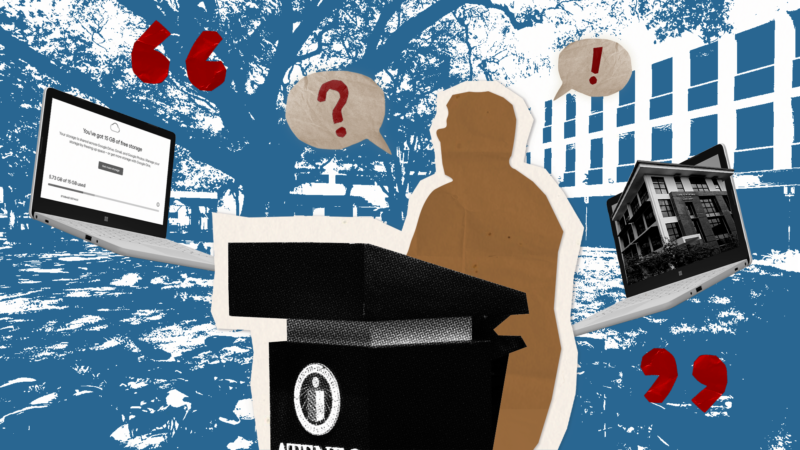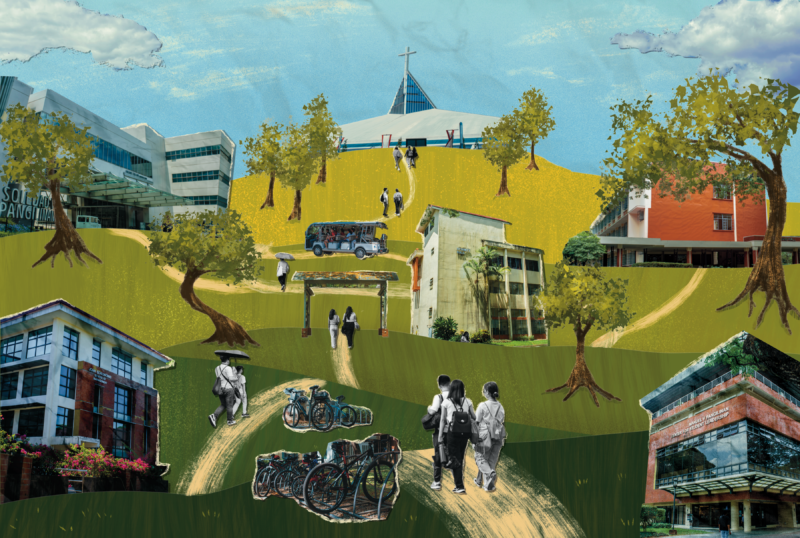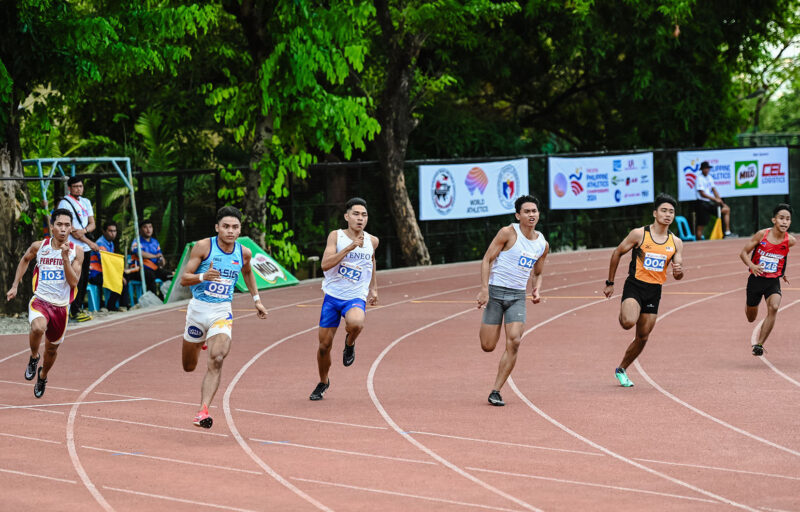FOLLOWING THE decision to continue online classes for the second semester of AY 2020-2021, the Loyola Schools (LS) administration is preparing for a new load revision system and the possibility of on-site laboratory classes.
According to Information Technology Resource Management Office (ITRMO) Director Sandra Lovenia, the previous load revision process encountered delays due to automation limitations and bottlenecks in departmental processes.
Meanwhile, School of Science and Engineering (SOSE) Dean Evangeline Bautista, PhD said that in spite of successful online laboratory classes in the first semester, there are still classes that must be conducted on-site due to equipment and safety needs.
Refining the system
Given the short time frame between the Intersession and First Semester periods of AY 2020-2021, Lovenia said that the administration lacked the time to develop a completely new load revision system. Instead, they purchased Forms Approval, a Google Forms add-on that automates the sending of load revision requests for faster processing.
However, the ITRMO belatedly realized that there was a queue to the add-on’s automation. Lovenia explained that this queue contributes to a longer process of workflow as high numbers of submissions get queued—this ultimately led them to subscribe to a faster processing service.
“[Forms Approval] has to process the different requests, and one of our analyses showed that there’s a certain queue [that] takes a while especially if there’s a lot to process. […] We had to subscribe to an additional service para mas mapabilis ‘yung processing,” she said.
Additionally, Lovenia noted that the load revision process can vary in speed because different departments are handling the requests. To solve this, they will automate the categorization of requests and approve all requests through Ateneo Integrated Student Information System (AISIS).
To illustrate, Lovenia mentioned that students who have load revision requests without additional payments can already be added to their official class lists. With the automated categorization, the Central Accounting Office no longer has to manually identify whether a student still has to pay for tuition.
“It’s easier to access the records of the student […] [so the departments] can easily approve [requests]. Ibig sabihin we expect that there will be shorter time to process certain requests because in a way, the [load revision] steps have also been revised,” Lovenia said.
Despite plans for the new load revision system, Office of Management Information Systems Director James Gregorio and Assistant Director Jay Delfin said that AISIS has yet to be fully synchronized with learning management systems (LMS) such as Canvas and Moodle. According to them, the implementation of the new load revision system is a huge task that requires many offices at work so that they can finish the improvements by December.
“We are just currently exploring the possibility [of fully synchronizing AISIS and LMS] but with [the new load revision system] already queued for second semester registration, we might not be able to make it happen for January 2021,” Gregorio and Delfin said.
Weighing options
As for the on-site laboratory classes, Bautista said that these will cover graduating students only as they must achieve certain learning outcomes for graduation. Through several consultations with different LS departments and faculty, on-site laboratory classes were narrowed down to Biology and Chemistry classes, as well as some thesis work.
“BS Chemistry is a concern because they have board exams. BS Biology is a concern because students are going to medical school, so there are requirements to do in on-site laboratory classes, which is why we have no choice but to have it,” Bautista clarified.
Baustista explained that there are currently two modes proposed for on-site laboratory classes. In bubble mode, students will be quarantined on campus for two weeks and if no COVID-19 symptoms develop, they can participate in laboratory courses.
The other mode is strict social distancing, which will allow only three students in a laboratory classroom at a scheduled time. Students who choose this can either commute to and from their homes or dorm on campus and shoulder their living expenses. Bautista also mentioned that the Office of Admission and Aid can possibly lend financial assistance to scholars in need of aid.
According to Bautista, the schedule of laboratory classes in both modes is still being finalized by SOSE departments. However, it will most likely be compressed to a span of two weeks to one month should it be deemed necessary.
She also clarified that students will use personal protective equipment and observe social distancing for both modes to ensure safety. University Physician Dr. Norman Dennis Marquez added that the University’s Occupational Safety and Health Committee was tasked to issue protocols in preparation for the gradual re-opening of the University.
Marquez explained that the University has been adapting evidence-based safety and health measures since March. This included reconfiguring offices and classrooms for two-meter distancing, maintaining desirable campus population, tracking mobility with the use of technology, and intensifying the University’s regular cleaning and disinfection.
However, Bautista said that obtaining the Commission on Higher Education’s (CHED) approval is the main issue. CHED’s guidelines allow face-to-face classes in low-risk modified general community quarantine areas starting January 2021, but the LS cannot predict whether Quezon City will become a high-risk area by then.
Bautista added that they have informed students that they may not graduate on time if CHED does not approve their proposal. Thus, they hope to receive their approval before the first semester ends.
For the community
Amid the complications of these changes, Bautista claimed that they are doing their best to help students graduate on time.“[Students are] aware of that because in that sense our hands are actually tied. But we want to make sure that we […] explore all options to help them be able to graduate,” she said.
Marquez requested for the LS community’s patience as plans are still tentative due to “volatile” circumstances. Similarly, Lovenia also asked for understanding from the community since their current plans require more rewiring and restructuring.
“For now, we just want to continue to thank the community for being so patient and understanding. We are continuously adapting and adjusting to this new normal,” Gregorio and Delfin added.







